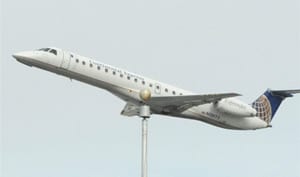EMERGING MARKETS ROUNDUP: BRAZIL
by Antonio Guerrero
 |
|
Brazilian companies take flight |
Board members at Petrobras, the Brazilian state oil company, are calling on the company to tame costs linked to its $224 billion 2011-2015 spending plan. The investment program seeks to support the company’s plan to boost oil output by 40% by 2014, becoming one of the world’s top oil producers, mainly by developing and tapping pre-salt deepwater reserves. However, board members, including finance minister Guido Mantega, are delaying the plan’s approval until Petrobras curbs costs, contending the program could ultimately dilute the company’s value if it is forced to boost borrowing or issue new shares. If approved, the investment program would make Petrobras the world’s largest publicly traded oil company, surpassing Exxon Mobil. Petrobras executives are reviewing the plan to include cost-reduction components that may ease board members’ concerns.
With Brazilian companies continuing to increase their investments abroad, the BNDES state-owned development bank is considering opening an office in Asia to support clients. China, where such Brazilian companies as airplane manufacturer Embraer maintain operations, is likely to be the site of the new BNDES office. However, the bank is also looking beyond the Asian giant. It signed an agreement with the Japan Bank for International Cooperation in June to conduct joint investments of up to $3 billion in infrastructure projects. Moody’s pushed Brazil’s sovereign credit rating further into investment grade territory, with a June upgrade to Baa2 from Baa3. Moody’s had last upgraded Brazil in September 2009, from Ba1. The recent ratings action was prompted by the government’s improved finances and Brazil’s strong economic performance, according to Moody’s. While the ratings agency acknowledged ongoing concern over a potential credit bubble, it said such an event would only minimally impact the government’s balance sheet, thanks to Brazilian banks’ high capital ratios and the country’s low credit-to-GDP ratio. S&P; rates Brazil at BBB-, while Fitch rates the sovereign at BBB.
GOVERNMENT LOOKS TO SUPPORT BRAZIL’S CORPORATE EXPANSION
Board members at Petrobras, the Brazilian state oil company, are calling on the company to tame costs linked to its $224 billion 2011-2015 spending plan. The investment program seeks to support the company’s plan to boost oil output by 40% by 2014, becoming one of the world’s top oil producers, mainly by developing and tapping pre-salt deepwater reserves. However, board members, including finance minister Guido Mantega, are delaying the plan’s approval until Petrobras curbs costs, contending the program could ultimately dilute the company’s value if it is forced to boost borrowing or issue new shares. If approved, the investment program would make Petrobras the world’s largest publicly traded oil company, surpassing Exxon Mobil. Petrobras executives are reviewing the plan to include cost-reduction components that may ease board members’ concerns.
With Brazilian companies continuing to increase their investments abroad, the BNDES state-owned development bank is considering opening an office in Asia to support clients. China, where such Brazilian companies as airplane manufacturer Embraer maintain operations, is likely to be the site of the new BNDES office. However, the bank is also looking beyond the Asian giant. It signed an agreement with the Japan Bank for International Cooperation in June to conduct joint investments of up to $3 billion in infrastructure projects. Moody’s pushed Brazil’s sovereign credit rating further into investment grade territory, with a June upgrade to Baa2 from Baa3. Moody’s had last upgraded Brazil in September 2009, from Ba1. The recent ratings action was prompted by the government’s improved finances and Brazil’s strong economic performance, according to Moody’s. While the ratings agency acknowledged ongoing concern over a potential credit bubble, it said such an event would only minimally impact the government’s balance sheet, thanks to Brazilian banks’ high capital ratios and the country’s low credit-to-GDP ratio. S&P; rates Brazil at BBB-, while Fitch rates the sovereign at BBB.



